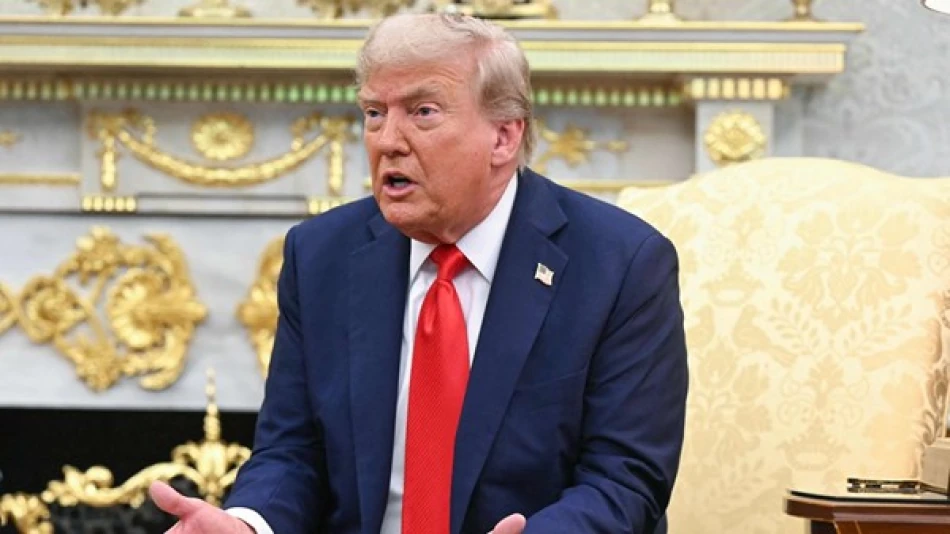
Trump Fires Back at EU After Google Fined, Raising Tensions
Trump Threatens EU Trade War Over Google's $3.47 Billion Antitrust Fine
President Donald Trump has escalated tensions with the European Union by threatening punitive tariffs if Brussels doesn't reverse its massive €2.95 billion ($3.47 billion) fine against Google for anti-competitive advertising practices. The confrontation signals a potential return to aggressive trade tactics that could reshape the global tech regulatory landscape and force American companies to navigate between competing jurisdictions.
The Battle Lines Are Drawn
Writing on his Truth Social platform Friday, Trump characterized the EU's antitrust enforcement as an attack on American innovation, declaring that Europe had "attacked another major American company." The fine, imposed for Google's preferential treatment of its own advertising services over competitors, represents one of the largest regulatory penalties in tech history.
Trump's threat to invoke Section 301 trade procedures — the same mechanism he used extensively during his previous presidency to target China — demonstrates his willingness to weaponize trade policy in defense of Silicon Valley giants. This approach marks a stark departure from traditional Republican skepticism of big tech monopolies.
A Pattern of Transatlantic Tech Tensions
The Google fine isn't an isolated incident but part of a broader European strategy to rein in American tech dominance. The EU has previously imposed billions in penalties on Apple for tax arrangements and has targeted other US tech companies under its Digital Markets Act. These actions reflect Europe's determination to assert regulatory sovereignty over platforms that dominate its digital economy.
Historical Precedent for Trade Retaliation
Trump's Section 301 threat carries significant weight given his track record. During his first term, he used this trade tool to impose tariffs on over $300 billion worth of Chinese goods, fundamentally altering global supply chains. Applying similar pressure to the EU — America's largest trading partner after China — could trigger a far more complex economic confrontation.
Market and Investor Implications
For investors, Trump's intervention creates a new variable in tech stock valuations. Google's parent company Alphabet faces not just the immediate financial hit from EU fines, but potential benefits if US trade pressure forces regulatory rollbacks. However, a broader trade war could hurt American tech companies' European operations and complicate their global expansion strategies.
The threat also signals to markets that Trump views big tech as a strategic national asset worthy of protection, despite his previous criticisms of these companies' content moderation policies. This protective stance could benefit major tech stocks while creating uncertainty about future regulatory environments.
The Broader Regulatory Chess Game
Trump's response reflects a fundamental clash between American and European approaches to tech regulation. While the EU emphasizes consumer protection and market competition through aggressive antitrust enforcement, the US increasingly views its tech giants as geopolitical assets in competition with China.
This protection of American tech companies abroad contrasts sharply with growing bipartisan concerns about their domestic market power. The paradox highlights how global competition is reshaping traditional regulatory philosophies, with national economic interests often trumping ideological consistency on market concentration.
What This Means for Global Tech Governance
If Trump follows through on his threats, it could fundamentally alter how international tech regulation develops. European regulators might face pressure to moderate their enforcement, while other countries could be forced to choose between American trade retaliation and their own regulatory sovereignty. The outcome will likely determine whether the next decade sees harmonized global tech rules or an increasingly fragmented digital economy divided along geopolitical lines.
Most Viewed News

 Layla Al Mansoori
Layla Al Mansoori






